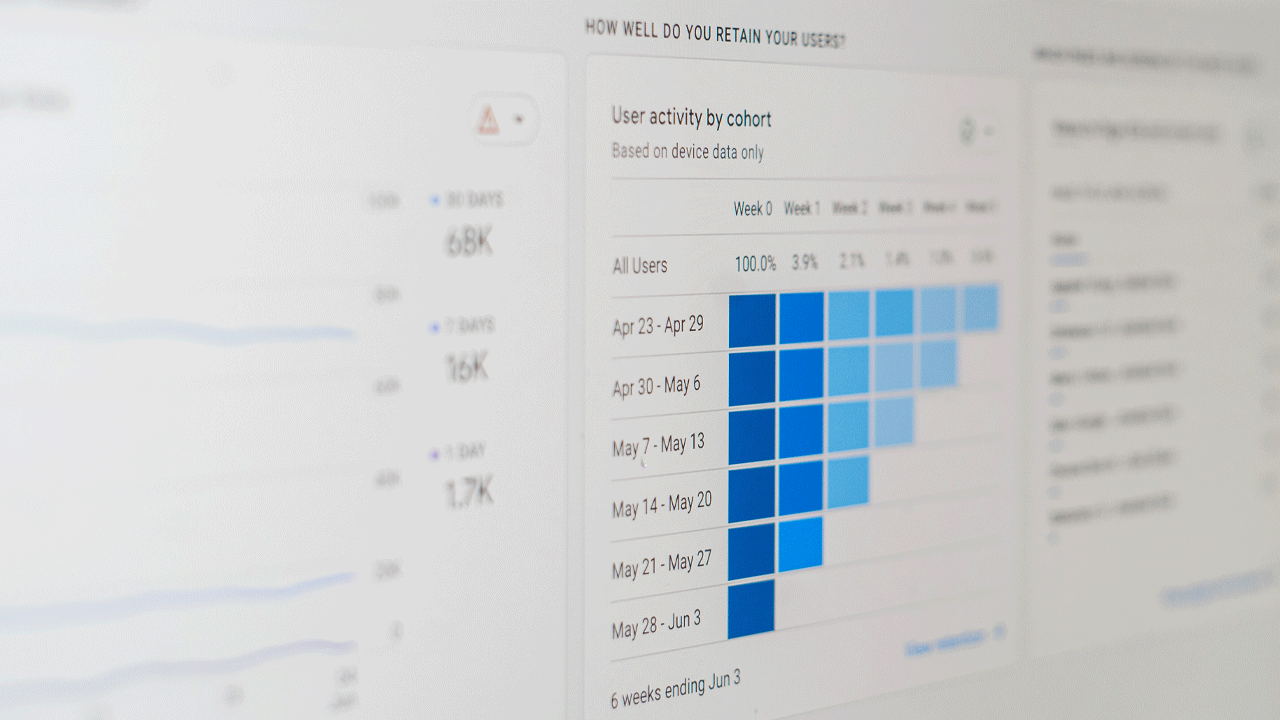Ever tried to navigate a city without a map? You might eventually reach your destination, but it’s likely to take longer and involve a few wrong turns. The same can be said for SEO. Without a clear strategy and understanding of the landscape, you’re likely to make a few blunders that could cost you valuable organic traffic. In this article, we’ll be your friendly tour guide, steering you clear of the common SEO pitfalls that could be hindering your website’s performance.
We’ll delve into the significance of keyword research, the often underestimated power of on-page SEO, and the dire consequences of neglecting high-quality content. We’ll also discuss why a slow website is like a snail in a sprint race, and why ignoring mobile optimization is akin to forgetting your phone at home in the digital age. Lastly, we’ll explore the importance of analytics in your SEO strategy, because what good is a map if you don’t know how to read it? So buckle up, and get ready for a journey through the bustling city of SEO, where the traffic is organic and the growth potential is limitless.
1. Understanding the Importance of Keyword Research in SEO
One of the most crucial aspects of a successful SEO strategy is keyword research. It is the backbone of any SEO campaign and can significantly impact your website’s organic traffic. Without proper keyword research, your content may not reach its intended audience, resulting in lower search engine rankings and decreased traffic. Therefore, understanding and implementing effective keyword research is vital for improving your website’s visibility and attracting more organic traffic.
Here are some key steps to effective keyword research:
- Identify your niche: Understand what your business is about and what kind of content your audience is interested in.
- Analyze your competitors: Look at the keywords your competitors are ranking for and consider how you can incorporate similar keywords into your content.
- Use keyword research tools: Tools like Google Keyword Planner, SEMrush, and Ahrefs can help you find high-volume, low-competition keywords.
- Consider search intent: Think about what users are likely to be looking for when they type in a particular keyword. This can help you create content that meets their needs.
- Optimize your content: Once you’ve identified your keywords, incorporate them into your content in a natural and meaningful way.
By following these steps, you can create a robust keyword strategy that will help you attract more organic traffic and improve your SEO performance.
The Consequences of Ignoring On-Page SEO Optimization
Ignoring on-page SEO optimization can have detrimental effects on your website’s organic traffic. On-page SEO is a crucial component of any successful digital marketing strategy, and neglecting it can lead to a significant drop in search engine rankings. This, in turn, can result in lower visibility, decreased traffic, and ultimately, fewer conversions. Furthermore, without proper on-page SEO, your website may not be seen as relevant or valuable to search engines, making it harder for your target audience to find you.
Moreover, ignoring on-page SEO can also lead to a poor user experience. SEO isn’t just about pleasing search engines; it’s also about providing value to your audience. Without optimized content, navigation, and website design, users may struggle to find the information they’re looking for, leading to higher bounce rates. In conclusion, the importance of on-page SEO cannot be overstated. It’s not just about improving your rankings; it’s about providing a better experience for your users and ultimately, driving more organic traffic to your site.
The Pitfalls of Neglecting High-Quality Content for SEO
Many businesses often underestimate the importance of high-quality content in their SEO strategies. They focus on keywords and backlinks, but neglect the very essence of what makes a website valuable to its visitors – the content. High-quality content is not just about being well-written or interesting. It’s about being relevant, useful, and engaging to your audience. It’s about answering their questions, solving their problems, and providing value. This is what keeps them coming back and this is what search engines reward.
Tip sheets can be a valuable tool in creating high-quality content. They provide concise, practical advice on a specific topic, making them highly useful to your audience. However, they should not be used as a substitute for comprehensive, in-depth content. Tip sheets should complement your main content, not replace it. They can be used to highlight key points, provide quick solutions, or offer additional resources. But remember, the goal is to provide value, not just to fill up space with keywords.
The Impact of Slow Website Speed on Organic Traffic
Website speed is a critical factor that significantly influences organic traffic. A slow-loading website can deter potential visitors, leading to a higher bounce rate and negatively impacting your site’s SEO ranking. Google’s algorithm considers site speed as a ranking factor, meaning a slow website can harm your visibility on search engine results pages (SERPs). On the other hand, a fast-loading website provides a better user experience, encouraging visitors to stay longer and explore more content, which can boost your organic traffic. However, improving website speed requires technical knowledge and resources, and it may not be feasible for all businesses. It’s also worth noting that while a fast website can enhance user experience and SEO, it’s just one of many factors that contribute to your overall SEO strategy.
The Risks of Overlooking Mobile Optimization in SEO Strategy
As the digital landscape continues to evolve, the importance of mobile optimization cannot be overstated. Mobile optimization is a critical aspect of any effective SEO strategy, and overlooking it can lead to significant risks. With the majority of internet users now accessing the web via mobile devices, search engines have adapted their algorithms to prioritize mobile-friendly websites. Consequently, failing to optimize your website for mobile can result in lower search rankings, decreased organic traffic, and ultimately, lost business opportunities.
Moreover, a mobile-optimized website provides a superior user experience, which is a key factor in SEO. Users are likely to abandon a site that is difficult to navigate on a mobile device, leading to a higher bounce rate. This can negatively impact your site’s SEO performance, as search engines consider user behavior metrics in their ranking algorithms. Investing in mobile optimization not only enhances user experience but also improves your site’s visibility in search engine results, driving more organic traffic to your site. In conclusion, mobile optimization is not just an optional add-on, but a necessity in today’s mobile-first world. Ignoring it can put your business at a significant disadvantage in the increasingly competitive digital marketplace.
6. The Downside of Not Utilizing Analytics for SEO Improvement
Investing time and resources into SEO without tracking the results can be likened to driving a car blindfolded. You’re moving, but you have no idea where you’re going or if you’re even on the right track. Utilizing analytics for SEO improvement is not just an option; it’s a necessity. It provides valuable insights into how your website is performing, which strategies are working, and which areas need improvement. Without these insights, you’re essentially guessing, and in the competitive world of SEO, guesswork just doesn’t cut it.
Consider two websites, Website A and Website B. Website A uses analytics to track its SEO performance while Website B does not. Over time, Website A is able to identify that its blog posts are driving the most traffic, particularly those that are long-form and include infographics. As a result, they focus more resources on creating this type of content, leading to a significant increase in organic traffic. On the other hand, Website B, without any data to inform its strategy, continues to invest in short-form blog posts that do not perform as well, leading to stagnant or even declining organic traffic.
Let’s look at a comparison table to illustrate this point further:
| Website | Strategy | Organic Traffic (Monthly) |
|---|---|---|
| Website A | Long-form blog posts with infographics (informed by analytics) | 10,000 visits |
| Website B | Short-form blog posts (not informed by analytics) | 2,000 visits |
In conclusion, not utilizing analytics for SEO improvement is a significant mistake that can hinder your website’s organic traffic growth. Analytics provide the data-driven insights necessary to inform your SEO strategy and ensure that your efforts are not wasted. So, if you’re not already using analytics, it’s time to start.
Frequently Asked Questions
What are some effective methods for keyword research?
Effective methods for keyword research include using SEO tools like Google Keyword Planner, SEMrush, and Ahrefs. These tools can help you find high-volume, low-competition keywords. Additionally, analyzing your competitors’ keywords and understanding your audience’s search intent are also crucial.
Why is on-page SEO optimization crucial for my website?
On-page SEO optimization is crucial as it helps search engines understand your website and its content, as well as identify whether it is relevant to a searcher’s query. It includes optimizing your headlines, HTML tags (title, meta, and header), and images. It also means ensuring your website has a high level of expertise, authoritativeness, and trustworthiness.
How can I ensure the content I create is high-quality for SEO?
High-quality content for SEO is original, well-researched, and provides value to the reader. It should be engaging, easy to read, and relevant to the keywords you’re targeting. Including visuals, infographics, and videos can also enhance the quality of your content.
How does website speed affect my organic traffic?
Website speed is a critical factor in SEO. If your website takes too long to load, visitors are likely to leave, increasing your bounce rate. Search engines like Google consider website speed as a ranking factor, so a slow website can negatively impact your position in search results, reducing your organic traffic.
Why is mobile optimization important in an SEO strategy?
Mobile optimization is essential as more people are using mobile devices to browse the internet. If your website isn’t mobile-friendly, users are likely to have a poor experience and leave. Google uses mobile-first indexing, meaning it predominantly uses the mobile version of the content for indexing and ranking. Hence, not having a mobile-optimized website can hurt your SEO.




